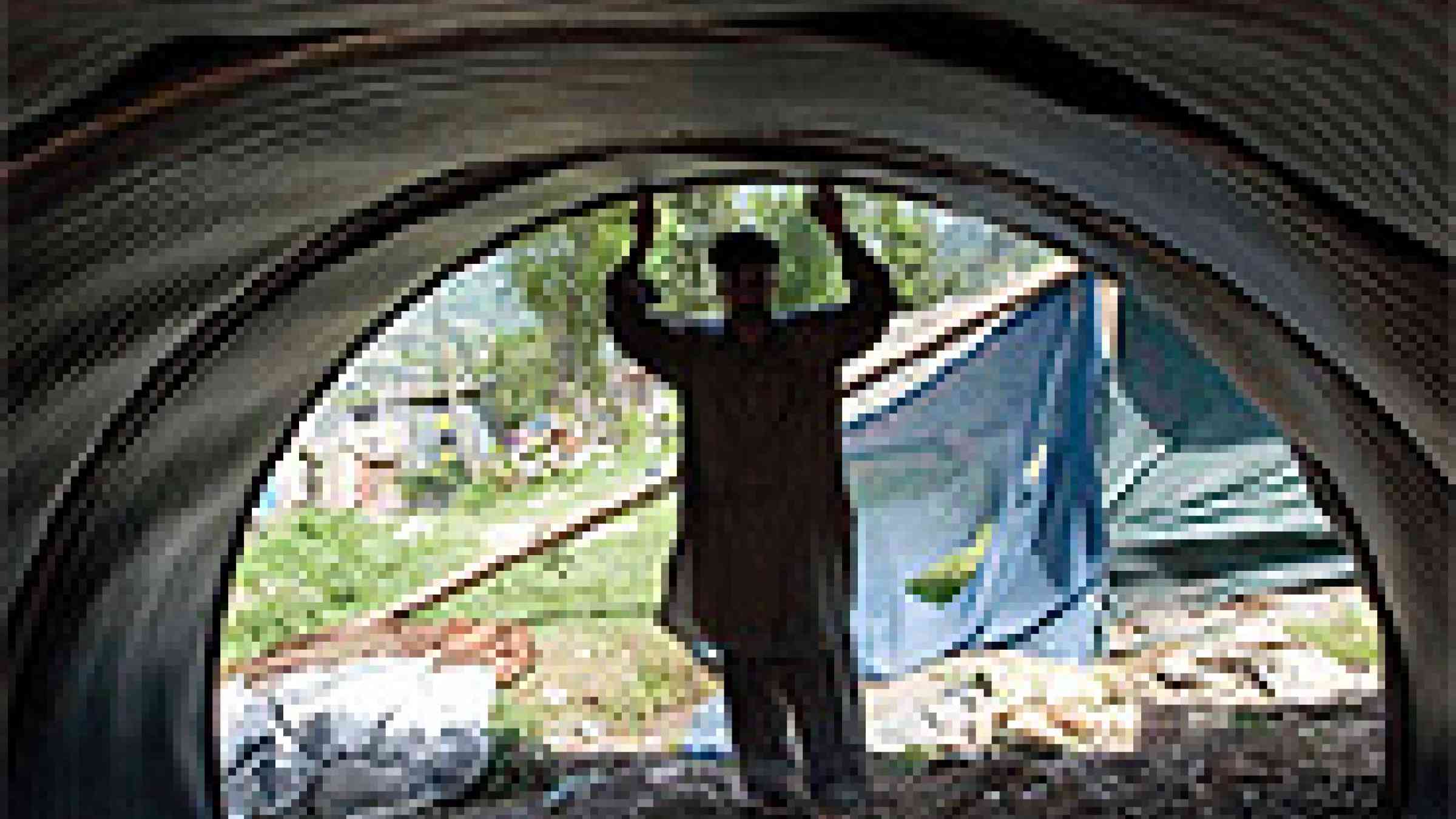World Bank launches publication consolidating global best practices in housing reconstruction

Bangkok - The World Bank announced today the release of Safer homes, Stronger Communities: A Handbook for Reconstructing after Natural Disasters, a knowledge tool developed by the Bank in partnership with the Earthquake and Megacities Initiative, Habitat for Humanity International, the Royal Institution of Chartered Surveyors, Shelter Centre, the United Nations International Strategy for Disaster Reduction, and the World Housing Encyclopaedia, and funded by the Global Facility for Disaster Reduction and Recovery (GFDRR). The Handbook provides guidance to relevant policy‐makers, project managers and World Bank staff in making decisions on how to reconstruct disaster‐affected housing and communities, particularly on issues related to housing and community development, infrastructure, environmental management, disaster risk reduction, and public finance.
Since post-disaster reconstruction begins with a series of decisions that must be made almost immediately but are meant to have long‐term impacts on the lives of those affected by the disaster, the Handbook takes into account the challenges faced by government officials to balance the need for a quick and proper recovery plan and due community involvement. Across 23 chapters, the Handbook provides tools for a systematic and integral approach to the reconstruction process, managing communications with stakeholders, and implementing a monitoring and feedback system as a critical element in all policy areas of recovery.
“The handbook is not a quick, fit‐all recipe for reconstruction policy, instead it provides elements to create a tailored one which will likely lead to better outcomes,” said Abhas K. Jha, World Bank Regional Coordinator for Disaster Risk Management in East Asia and the Pacific and Lead Author of the Handbook. “It emphasizes the need for countries to invest in capacity building and establish a culture of risk management before disasters hit and to ensure that tools to analyze and mitigate risks are widely understood and diligently applied. To this end the Handbook fills a widespread gap in managing largescale reconstruction programs.”
The World Bank has accumulated valuable experience in large‐scale housing reconstruction programs in Indonesia (Aceh, Jogjakarta), Pakistan, Iran (Bam), and India (Gujarat), among others. The Handbook brings this research and knowledge together in one publication, including more than 100 case studies written by experts with hands‐on experience in post‐disaster housing and community reconstruction, as well as links to extensive technical information on the topics covered by the handbook. This information is complemented by a Web site for practitioners in the field, which provides instruments for continuous exchange of knowledge and best practices, at http://www.housingreconstruction.org.
“With the growing risk of natural hazards in the East Asia and Pacific region, coupled with the vulnerabilities of the housing sector in particular, the timing of “Safer Homes, Stronger Communities” is very appropriate. It provides policy makers and project managers the key elements of housing reconstruction along with sharing of the rich experiences of previous reconstruction programmes in the region”, said Dr. Bhichit Rattakul, Executive Director of the Bangkok‐based Asian Disaster Preparedness Center. “However, of critical importance is that we advocate for the use of the Handbook among stakeholders at all levels, and more importantly, ensuring capacity is built among the practitioners on the use of the various tools proposed in the Handbook”.
The report was launched at a special event co‐organized by the Asian Disaster Preparedness Center and WB/GFDRR at the ADPC Headquarters today in Bangkok, with the participation of regional partners, Government and UN agencies, NGO representatives and housing reconstruction experts.
Media Contacts:
In Bangkok Hailey Kim Phone: +66 (0) 22980681 to 92 (Ext 256) E‐mail: [email protected]
In Washington, D.C. Zeeshan Suhail Phone: +1 202 458 7382 E‐mail: [email protected]